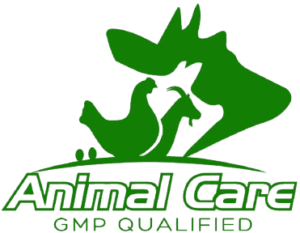Abstract
This guide outlines the use of 1% Ivermectin Injection in treating
What is Ivermectin?
Ivermectin is a broad-spectrum antiparasitic medication that is highly effective against a wide range of internal and external parasites in animals. It belongs to the avermectin family of drugs and is commonly used in veterinary medicine to treat infections caused by parasites such as gastrointestinal worms, lungworms, mites, lice, and other external parasites. It works by paralyzing and killing these parasites, thereby eliminating them from the animal’s body.
How Ivermectin Works
Ivermectin works by interfering with the nerve and muscle functions of parasites. It binds to specific channels in the nerve and muscle cells of the parasites, increasing the flow of chloride ions into the cells. This disrupts their nerve signals, leading to paralysis and death of the parasites. It does not harm the host animal as it primarily targets the nervous systems of invertebrates (parasites).
Suitable Animals for 1% Ivermectin Injection
1% Ivermectin Injection is used across a range of livestock to control internal and external parasites. Below is a list of animal
- Cattle
- Parasites:
- Dosage: 1
- Sheep and Goats
- Parasites: Gastrointestinal worms, lungworms, nasal bots, lice, mites.
- Dosage: 1 ml per 50 kg body weight.
- Pigs
- Parasites: Gastrointestinal worms, lungworms, lice, mange mites.
- Dosage: 1 ml per 33 kg body weight.
- Horses
- Parasites: Gastrointestinal worms, lungworms, bots, lice, mites.
- Dosage: 1 ml per 50 kg body weight.
- Camels
- Parasites: Gastrointestinal worms, lungworms, mange mites.
- Dosage: 1 ml per 50 kg body weight.
- Deer
- Parasites: Gastrointestinal worms, lungworms, external parasites like lice and mites.
- Dosage: 1 ml per 50 kg body weight.
Dosage by Weight
Accurately calculating the correct dose based on the animal’s weight is essential for effective treatment. Here is a dosage guide for animals of various weights:
| Animal Weight | Cattle, Sheep, Goats, Horses, Camels, Deer | Pigs |
|---|---|---|
| 1 kg | Not recommended | Not applicable |
| 5 kg | 0.1 ml | 0.15 ml |
| 10 kg | 0.2 ml | 0.3 ml |
| 50 kg | 1 ml | 1.5 ml |
| 100 kg | 2 ml | 3 ml |
Administration Method
1% Ivermectin Injection should be administered subcutaneously (under the skin). Always use sterile equipment and proper injection techniques to avoid infections at the injection site.
Precautions
- Overdose Warning: Avoid overdose, especially in certain breeds of dogs (such as collies) which are more sensitive to ivermectin toxicity.
- Withdrawal Period: Adhere to the withdrawal period before slaughter. For cattle, a typical withdrawal period is 21 days.
- Do Not Use in Lactating Animals: Avoid using ivermectin in animals producing milk for human consumption.
- Veterinary Supervision: Consult a veterinarian before using ivermectin to ensure the correct dosage and safe use based on specific conditions.
Conclusion
1% Ivermectin Injection is an effective antiparasitic treatment for a range of livestock, including cattle, sheep, goats, pigs, horses, camels, and deer. It effectively controls both internal and external parasites, improving the health and productivity of treated animals. The recommended dosage provided is for reference only. Please consult with a veterinarian to adjust the dosage based on the specific conditions and the veterinarian’s clinical experience.
For more details on our products and veterinary solutions, please visit Mascot Biological Technology Co., Ltd.: www.sinoanimalhealthy.com.
Note: Always consult with a veterinarian before administering any drug.




